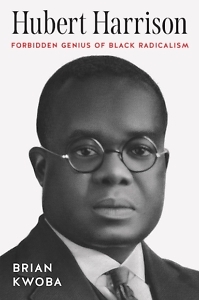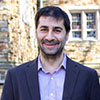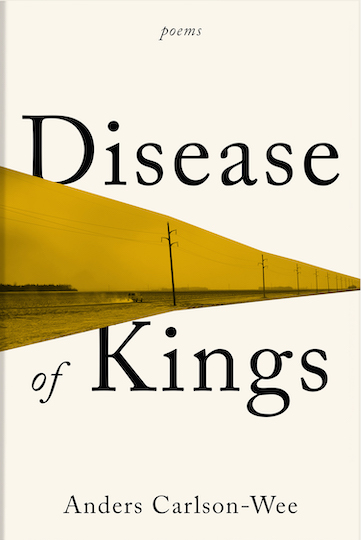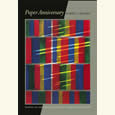Black Socrates
Brian Kwoba uncovers the fascinating legacy of Hubert Harrison, a Black radical intellectual of the early 20th century
The Black intellectual-activist Hubert Harrison espoused a “kaleidoscopic radicalism,” critiquing injustices of all sorts: racial segregation, exploitative capitalism, oppressive colonialism, even sexual convention. In Hubert Harrison: Forbidden Genius of Black Radicalism, Brian Kwoba highlights how Harrison shaped the political landscape in the early decades of the 20th century, even as he stood at the fringes of larger historical narratives.

Brian Kwoba is associate professor of history and the director of the African and African American Studies program at the University of Memphis. He earned his Ph.D. in history from Oxford University and has written articles for publications such as Black Perspectives and the Journal of African American History. He answered questions via email from Chapter 16:
Chapter 16: In brief, how would you describe Hubert Harrison? Who was he, and what were his main ideas?
Brian Kwoba: Hubert Henry Harrison (1883-1927) was a brilliant working-class journalist, activist, and educator. He pioneered an array of forward-thinking solutions to the systemic injustices of his day.
Harrison blazed a trail for Black workers and organizers in the Socialist Party of America, the Industrial Workers World, and the massive Paterson (New Jersey) Silk Strike of 25,000 textile workers in 1913
By the 1920s, Harrison had emerged as the most prominent Black freethinker of his generation. Most spectacularly, his Liberty League of Negro Americans catalyzed the rise of Marcus Garvey and the largest international organization of African people in modern history.
Chapter 16: In your introduction, you describe a strong personal identification with Harrison, given your own involvement in radical causes, with all its rewards and frustrations. Did this connection shape your writing of the book? Did it pose any particular challenge?
Kwoba: I learned about Harrison after I joined a socialist organization that descended from the same Socialist Party of America that Hubert Harrison once called his political home. So, yes, without my own activist background, I might have never learned about Harrison, let alone decided to write a Ph.D. dissertation and then a whole book about him. My 21 years of attending protests and organizing meetings as a Black radical positioned me to better see the reactionary historical forces that Harrison challenged, including robber baron oligarchs, Jim Crow racism, and the First World War.
I had a vantage point similar to Harrison’s as a Black radical political agitator and community organizer. My personal identification with Harrison also proved challenging at times, particularly when I had to decide how much of Harrison’s and/or my own interiority to reveal and make vulnerable.
Chapter 16: Perhaps surprisingly, Harrison advocated for “free love” in romantic relationships. How did he come to this idea? How might it connect to his larger political mindset?
Kwoba: Harrison was a multi-dimensional thinker. He connected the struggle of the working class against capitalism to the struggle of Black workers against the racism of their fellow white workers, as well as to the struggle of the workers of the world against colonialism and the imperialist “white world war” that pitted workers from multiple countries against each other.
Harrison’s secular, anti-religious freethinking positioned him to reject the church on many levels, including its Puritanical and sex-negative morality. He denounced federal government censorship, including of sexuality under the Comstock Laws and “anti-vice” crusaders.
On a personal level, the trials and tribulations of Harrison’s marriage and his desire for romantic freedom and variety led him to study the origin of our monogamist sexual ideals. He ultimately concluded that we are not monogamists by nature, but by religious, legal, and cultural coercion. In other words, the struggle for romantic freedom from compulsory monogamy formed part and parcel of the struggle for freedom more generally: the emancipation of workers from capitalism, of women from toxic patriarchal domination, of the colonized from colonialism, of people of color from white supremacy, and of reason from religious dogma.
 Chapter 16: In describing Harrison’s open-air street corner orations and teachings, you call him a “Black griot of the Harlem Acropolis.” What does that mean? What was Harlem’s intellectual culture in Harrison’s heyday?
Chapter 16: In describing Harrison’s open-air street corner orations and teachings, you call him a “Black griot of the Harlem Acropolis.” What does that mean? What was Harlem’s intellectual culture in Harrison’s heyday?
Kwoba: Harlem had a lively culture of street corner speaking in a dynamic co-creative process between orator and audience that Harrison crystallized into what many called the “outdoor university.” Harrison was like a modern-day Socrates, holding court in a Harlem version of the hallowed spaces that the ancient Greek sages once traversed, such as the Acropolis. At the same time, Harrison self-identified as an “untamed, untamable African,” so as I attempted to describe the setting of this extraordinary community institution, I had to reckon with not only the European but also the African antecedents for what Harrison and the Harlem street orators were doing. This I found to be more reminiscent of the West African griots, who combine the role of storyteller, musician, historian, and wisdom keeper. Hence, the idea of Harrison as a “Black griot of the Harlem Acropolis.”
Chapter 16: Harrison expressed as much concern for global politics and history as he did for American politics. How were his domestic politics tied to a larger internationalist outlook?
Kwoba: Harrison understood that war is a natural and inevitable outgrowth of the capitalist system: Its relentless thirst for profit drives the ruling classes of the world into a constant search for new ways to make money. Like many other socialists, Harrison argued that the exploitation of working people at home inexorably leads to imperialism abroad, as the capital invested at home seeks foreign markets for its excess commodities and foreign outlets for investing its profits.
The clash of armies between capitalist countries in the “white world war” was therefore the military expression of the clash of global capitalist economic competitors. This led Harrison to call for a “Colored International” alliance of colonized peoples in Africa, Asia, and Latin America to fight against global capitalism and imperialism. This internationalism catalyzed the rise of the Garvey movement, which directly influenced a whole generation of Black and African nationalists from Kwame Nkrumah to Malcolm X.
Chapter 16: How is Harrison’s legacy “forbidden”? Was he consciously excluded from the main narratives of African American history? If so, how and why?
Kwoba: Harrison’s fearless radicalism exposed glaring weaknesses in some of the most prominent institutions, individuals, and ideas of his day. So they wrote him out of history. For example, the so-called “Harlem Renaissance” is a major narrative framework of early 20th-century African American history. But this framework was developed and deployed specifically to eclipse and replace the postwar radicalism of “New Negroes” like Harrison. He preferred socialism, communism, and Black nationalism to the patriotic ethos of the white liberals who went uptown in the 1920s, learned something new about the arts and culture of “the Negro,” and then declared that discovery a “renaissance.” Harrison maintained that the matter of a Negro literary renaissance is like that of the snakes of Ireland — namely, there is no such thing.
So, of course, the historical gatekeepers of the “Harlem Renaissance” narrative excluded Harrison, much like their counterparts did in the Socialist Party, the NAACP, and the Garvey movement. All of them felt stung by Harrison’s criticisms and thereby sought to dis(re)member his revolutionary legacy.

Aram Goudsouzian is the Bizot Family Professor of History at the University of Memphis. His most recent book is The Men and the Moment: The Election of 1968 and the Rise of Partisan Politics in America.




